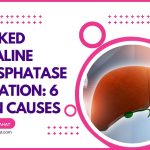What to Expect After H. Pylori Treatment? Gastroenterologist Explains.
Our content is not intended nor recommended as a substitute for medical advice by your doctor. Use for informational purposes only.
What you need to know:
The standard h. pylori treatment course eradicates it in most cases. However, you have a 20% chance of treatment failure. Your doctor often needs to re-test for h. pylori to confirm its eradication.
Treatment of H. pylori improves your symptoms and decreases the risk of ulcers, gastric cancers, and others.
Persistence or recurrence of your symptoms may indicate h. pylori treatment failure.
However, symptoms are not an accurate assessment of treatment failure. Testing is a must.
1. The Benefits you will get after H. pylori treatment.
In 1994, The NIH consensus conference recognized H. pylori as a cause of gastric and duodenal ulcers. In the same year, International Agency for Research on Cancer Identified H. pylori as a risk factor for gastric adenocarcinoma (reference).
Later on, h. pylori have been identified as a risk factor for a variety of diseases.
After successful treatment of H. pylori, you should expect:
- Improvement in chronic gastritis.
- Healing of gastric or duodenal h. pylori-induced ulcers.
- Lower risk of gastric cancer.
- Your risk of getting gastric MALT lymphoma will be lower. MALT lymphoma is a type of gastric lymphoma that is strongly associated with h. pylori).
- In people who already have MALT lymphoma, H. pylori treatment helps the resolution of the disease.
- h. pylori treatment may lead to improvement in some diseases beyond your gut. Examples are iron deficiency anemia, immune thrombocytopenic purpura (low platelet), coronary artery disease, asthma, insulin resistance, chronic urticaria, and others (reference).
2. The next step after the H. pylori Treatment course.
After you complete the 7-14 day course of h. pylori treatment, your doctor usually prescribes a proton pump inhibitor for another 4-8 weeks.
In small uncomplicated h. pylori ulcers, The 14-day treatment course can be sufficient if your symptoms have improved. However, if symptoms persist, Your doctor may prescribe a PPI (such as Esomeprazole or Omeprazole).
In large or complicated ulcers (bleeding or perforation), your doctor may prescribe the PPIs for up to 12 weeks (reference).
After the period of PPI therapy, Your doctor may re-test for h. pylori to confirm its eradication.
Treatment resistance rates are high nowadays. Re-testing is becoming a routine of practice because of the resistance.
3. When and how your doctor will confirm the eradication.
Your doctor will confirm the eradication fro H. pylori after at least four weeks after the end of the treatment course (reference).
Your doctor will confirm the eradication using one of:
- H. pylori urea breath test.
- H. pylori antigen in stool.
- Endoscopy-based tests (CLU test or biopsy): usually when another follow-up endoscopy.
- Endoscopic biopsy with culture and sensitivity test (for treatment-resistant h. pylori).
It is vital to stop PPIs (as omeprazole and esomeprazole) one or two weeks before the test. PPI may affect the results of h. pylori eradication (reference).
Also, h. pylori blood tests (antibodies) are not accurate in assessing the eradication. Antibodies persist in your blood. Hence they’re not able to differentiate between current and prior infection (reference).
4. Treatment failure rate (and its causes).
You should expect a 20% risk of failure of initial h. pylori treatment (reference). In such a case, Your doctor may attempt another course of h. pylori treatment (salvage therapy).
Treatment failure is becoming more common due to the increased resistance of h. pylori to antibiotics.
Causes of h. pylori treatment failure:
- Poor compliance with the medications.
- Resistant h. pylori strains.
- Prior use of the prescribed anti-h. pylori antibiotics. For example, taking clarithromycin for another infection carries higher risk of h. pylori treatment failure.
- Inadequate suppression of stomach acid during the h. pylori treatment.
The most significant factor in treatment failure is a genetic mutation in h. pylori stains. The mutant strain becomes resistant to clarithromycin antibiotics (reference).
Your doctor will assess the eradication at least four weeks after the end of treatment (as explained before).
5. Symptoms of h. pylori treatment failure.
The most important sign of a good h. pylori treatment is the resolution of your symptoms. The persistence of symptoms may indicate the failure of treatment.
However, the symptoms are not a good measure for h. pylori treatment success.
The only valid measure to assess treatment success or failure is testing for h. pylori. As we explained before, Testing should be at least four weeks after the end of treatment.
Symptoms of treatment failure:
- Persistence or recurrence of epigastric pain.
- The pain may become worse when your stomach is empty (especially with duodenal inflammation or ulcers).
- Persistent nausea.
- Loss of appetite.
- Bloating and frequent burping.
- Recurrence of bleeding from peptic ulcers.
6. How your doctor will deal with treatment failure.
Your doctor will confirm a re-test to assess h. pylori eradication. He may request another endoscopy to take a biopsy.
Your doctor may perform an h. pylori culture and sensitivity test using the biopsy sample.
The culture and sensitivity test aims to assess the antibiotic that is good for your specific h. pylori strain.
However, your doctor may but re-treatment plan without the need for the biopsy and C&S tests.
Often, the plan is based on a stronger antibiotic combination. Also, your doctor’s plan is guided by the local antibiotic-resistance patterns in your country or city.
Common treatment failure regimens (salvage therapy): (reference)
- Levofloxacin antibiotic-based regimens.
- Bismuth quadrable therapy.
- Clarithromycin quadrable therapy.
- Rifabutin-based triple therapy.
- High dose dual therapy (PPI and amoxicillin 1 gram three times daily).
- Evidence-based
- Written by a doctor.











